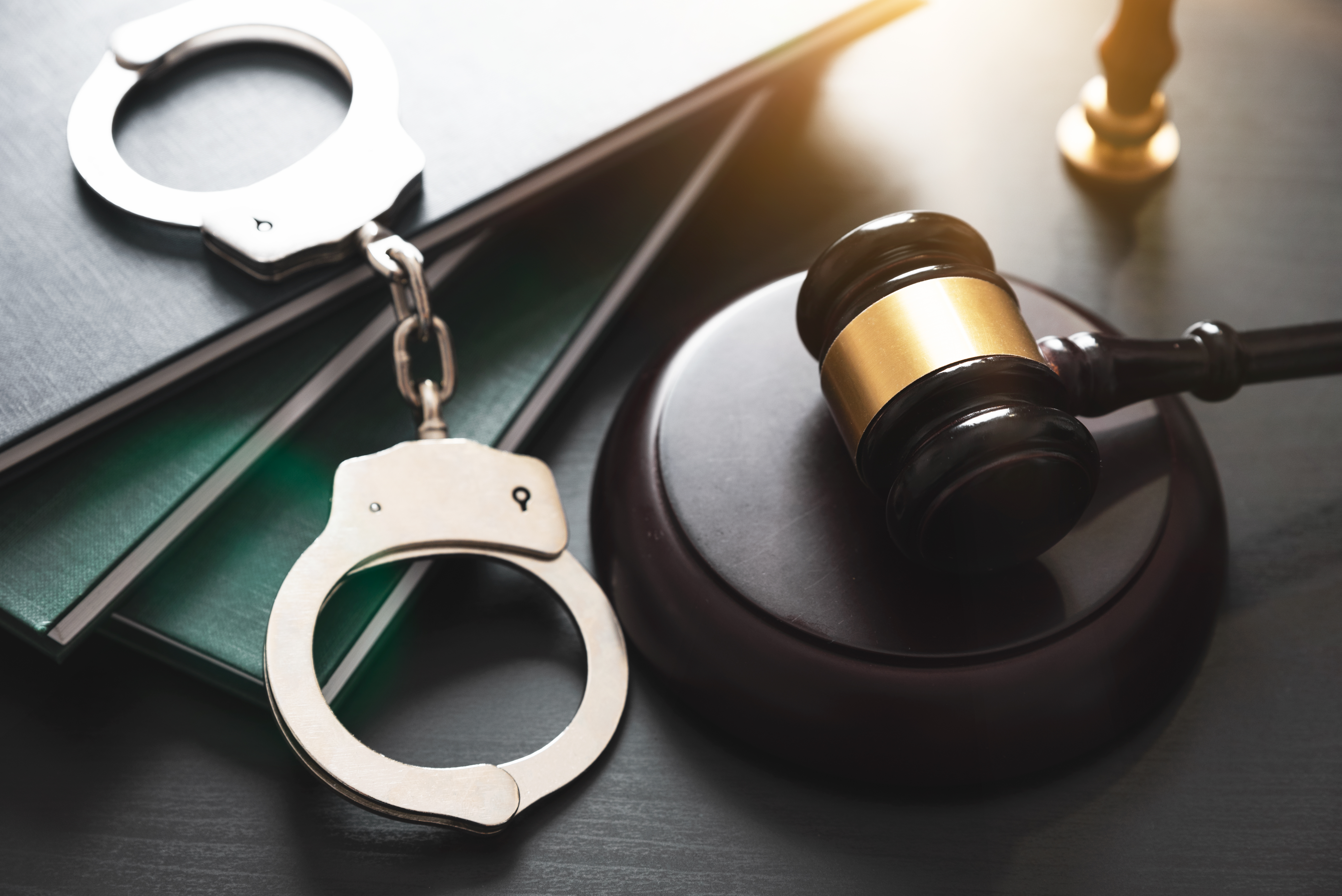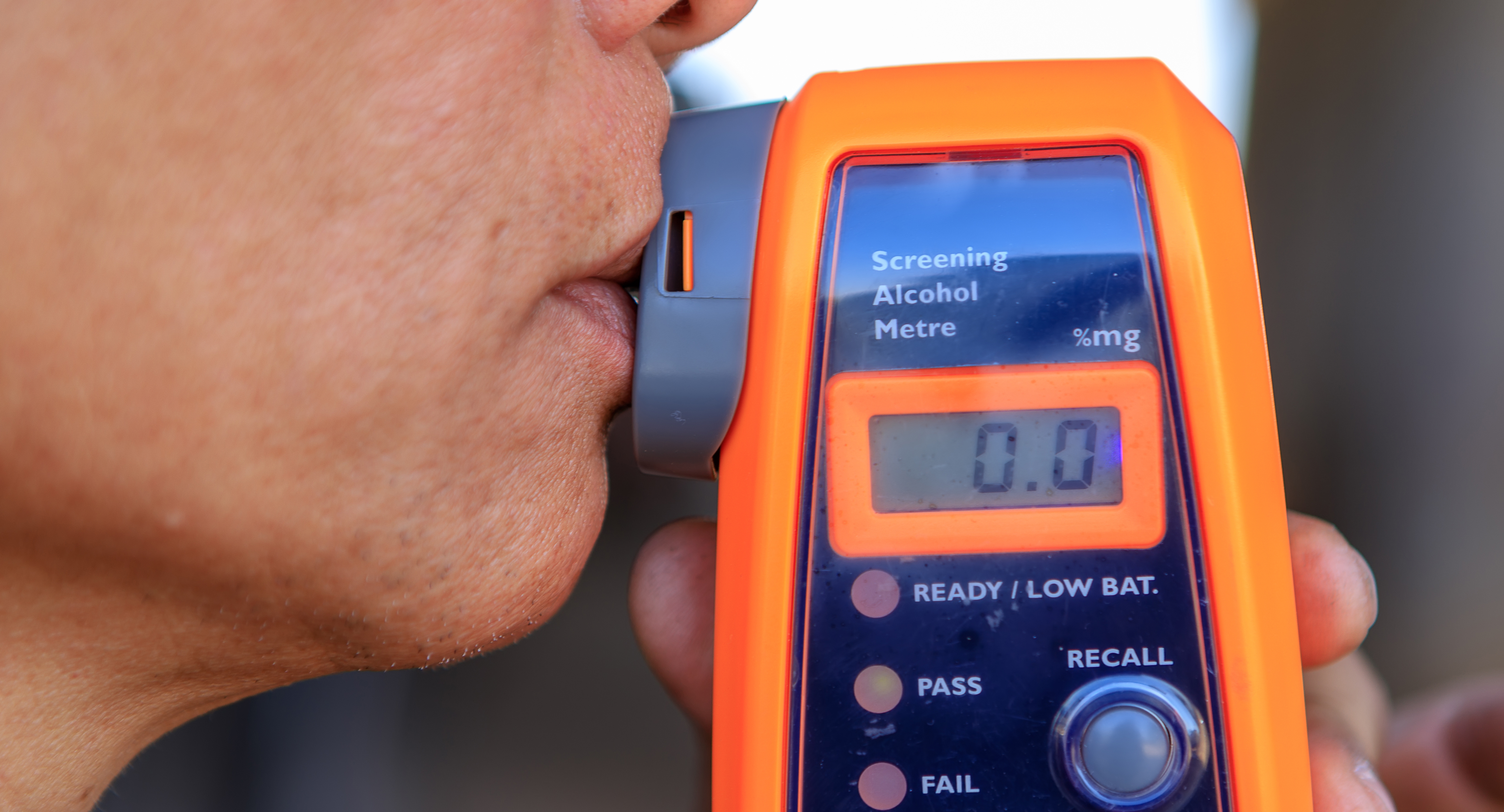After getting arrested and put in jail, you will typically be scheduled for an initial hearing, also called an arraignment, where a judge reads out the charges against you, informs you of your rights, and offers you the chance to enter a plea.
The judge will determine your bail amount based on various factors, such as the seriousness of the offense you’ve been accused of, whether you have a criminal history, your financial status, and your risk of fleeing.
Sometimes, typically for less serious misdemeanors, the judge may decide you can be released without bail based on your promise to return. This agreement is called a personal recognizance bond and usually comes with additional conditions, such as regular meetings with pretrial services.
But what happens if you’re not offered a PR bond and can’t afford to “post bail”? This is where surety bonds come in. Often referred to as just “bail bonds,” surety bonds involve borrowing money from a third-party bail bond company.
In this post, we’ll tell you everything you need to know about bond vs bail, including their respective definitions, purposes, advantages, and the processes for obtaining jail release.
Definition of Bond and Bail
If you’ve been charged with a crime, bail is the set amount of money you’ll be required to hand over to the court as an assurance so that you can be temporarily released from jail, pending legal proceedings. The bail amount acts as a guarantee that you will appear in court when required for the duration of the criminal case and comply with any other bail release conditions.
At the end of the trial, even if convicted, the bail amount is released back to you, providing you have not violated the bail conditions. Violating the conditions or failing to appear in court may result in you forfeiting the bail amount.
- The term “bail” is often used to describe a “cash bond,” where you pay the amount yourself upfront.
A bond refers to the arrangement where you provide a guarantee, financial or otherwise, to the court, allowing you to be released from jail pending the outcome of your court case. The contractual agreement, or the bond, is a promise that you will appear for court proceedings and comply with any additional conditions set by the judge. Depending on the type of bond, violating the conditions or not appearing can result in a predefined set of consequences, such as fines, the forfeiture of the bail amount, or both.
- The term “bond” is often used to describe an arrangement that involves a third-party company posting bail on your behalf. This option is often sought when a defendant or their family can’t afford to pay the bail amount without borrowing from a bond company.
Differences Between Bond and Bail
There are two distinct types of legal assurances: secured and unsecured. Secured bonds are backed by collateral or assets, such as cash or property deeds. Unsecured bonds are provided based on the applicant’s trustworthiness and ability to repay debt. All bonds are either secured or unsecured, depending on type.
- A cash bond, commonly referred to as “bail,” is a secured bond. If you do not comply, the court keeps your bail amount.
- Another type of secured bond is a property bond, where you offer the title to your property as collateral in return for your compliance.
- A surety bond, commonly referred to as “bond,” is a type of bond where a third party, usually a bondsman or bonding company, accepts responsibility for paying the bail amount to the court on your behalf if you fail to comply with the conditions of your release. Depending on your agreement with the bondsman, you may have to back your guarantee to the bondsman with assets, such as property or valuables.
- A Personal Recognizance bond (PR bond) is a type of unsecured bond. If you are granted a PR bond, you will be released from jail without having to pay money or collateral upfront, based on your promise to return to court and comply with the conditions. Violating a PR bond would result in a warrant for arrest and other consequences, such as fines.
Purpose and Conditions of Bond
Bail amounts can sometimes be quite significant and, for most people, unaffordable. A bail bond company may offer a more affordable option, as they usually only require a nonrefundable fee of between 10 and 20 percent.
For example, if your bail is set at $15,000, the bonding company will ask for an upfront fee of between $1,500 and $3,000. Most bonding companies will also require some form of collateral, such as deeds to property or other assets.
As the bonding company is taking on liability for your appearance and compliance, they may require you to check in with them regularly or even consent to being monitored. If you do fail to appear in court, a bonding company may hire the services of a bail recovery agent, also known as a bounty hunter.
If you are offered a PR bond, it will usually have additional conditions attached. Some examples of these conditions include:
- Pretrial supervision: regular meetings with a pretrial supervision or probation officer
- Drug and alcohol testing: You may be subjected to random drug and alcohol testing
- GPS monitoring: If deemed necessary, you may have to wear an electronic monitoring device that shows your whereabouts
- Education: Attendance at particular classes or education programs
Purpose and Conditions of Bail
The purpose of bail is to ensure your return for trial and other legal proceedings during your criminal case while, in the meantime, also allowing you to be released from custody until proven guilty.
If the judge believes that you may try to run away if released or that you pose a danger to the community, they may set a very high bail amount or deny bail altogether. On the other hand, if you have family ties to the community, have no prior criminal record, and have been charged with a minor offense, the judge may set the bail amount to be less than the usual minimum requirement.
The purpose of setting bail is not to punish but to ensure that you return to court for the rest of your legal proceedings. In the end, the judge will have discretion. They will consider each case individually while taking into account the defendant’s personal circumstances, public safety, and flight risk.
Similarly, the conditions attached to bail will depend on the circumstances of your case. Some typical conditions include:
- Abstaining from alcohol and drugs
- Remaining in the state
- Secure employment
- Stay away from specific people or places
- Regularly report to a pretrial supervision officer
Obtaining Bond and Bail: The Process
After you’ve been arrested and put in jail, you will be asked to provide specific personal details to pretrial services. This will include your name, date of birth, address, and other information, such as your employment status.
An arraignment, or initial hearing, will then be scheduled for you. The hearing usually occurs within a few hours to a few days after your arrest. You will appear before the judge, where the charges brought against you will be read out loud. You will be informed of your right to legal counsel and be given the opportunity to enter a plea.
At this point, the judge will have already been provided with your background information, including any prior criminal history. During the initial hearing, the judge will set the bail amount or—in some circumstances—offer a PR bond.
If you can afford to post bail, you can leave jail as soon as you arrange payment. Sometimes, the court may accept collateral in other forms, such as the title to your property.
If the bail is not affordable, you will be taken into custody. You, or a family member or friend on your behalf, can then reach out to a bail bond agent to arrange a bond. The bondsman will ask for a fee that is between 10% and 20% of your total bail amount and secure a form of collateral from either you or your friend or family member before posting bail on your behalf.
Advantages and Disadvantages of Bond and Bail
When deciding whether bail or bond is right for you, you should consider several aspects, including the financial impact of your decision. If you’re offered a PR bond, you should be aware of the potential associated costs.
Financial Aspects
The advantage of posting bail is that providing you comply with the conditions, you will get your money back at the end of the trial—minus any court fees and fines, which you would have to pay anyway.
The disadvantage is that you’ll take a big hit right at the start of your court proceedings when you may need the funds to hire a criminal defense attorney.
Not everyone can afford a cash bond. In this case, the services of a bondsman could be the quickest way out of jail for you. The disadvantage, however, is that you will be paying a non-refundable premium—between 10% and 20% of your bail amount. On top of the premium, if you lose the case, you’ll still be expected to pay any court fines and fees. In the end, a bond will cost more than bail.
If you are offered a Personal Recognizance bond, you won’t have to worry about coughing up financially for bail. However, there may be other costs involved. Often, conditions of a PR bond can include educational classes or counseling, which you would be expected to fund. For those charged with drunk driving offenses, you may be asked to install an ignition interlock device, which—again—you would be expected to fund.
The Impact of the Judge’s Choice on Legal Decisions
The judge’s decision on whether to offer you a PR bond or set bail—and the amount at which they set bail—can significantly affect the outcome of your case.
If you are denied bail or the judge sets an extremely high amount for bail, it can result in you remaining in jail until the conclusion of the trial. This can have a detrimental impact on your ability to actively participate in your defense, gather evidence, and meet your attorney. In other words, it limits your ability to build a strong defense.
If you do post bail or arrange a bond, but it takes up much of your funds, you may find yourself lacking access to the necessary resources for developing a good defense strategy.
On the other hand, if you are offered a PR bond and you comply with all the conditions, including attendance at court-ordered classes and counseling, you may potentially be able to use this as evidence of your trustworthiness to impact the outcome of your case positively, for example in plea negotiations or petitions for deferred adjudication.
Factors Influencing Bail Amount Determination in Legal Proceedings
The bail amount and the conditions attached to it will vary from case to case and person to person. Before determining your bail amount and conditions, the judge will consider the following factors:
- The severity of the offense you’ve been accused of committing
- Your flight risk
- Any prior convictions
- Your financial ability
- Employment status
- Your connections to the community (if you have family living in the area)
- Whether your release would pose a threat to public safety, including the safety of potential witnesses
- Prior court appearance record
Recent Changes and Trends in the Bond and Bail System
In the last few years, various organizations, such as the American Civil Liberties Union (ACLU) and the Bail Project, have fought to bring changes to the bail system to help make the overall justice system fairer to those who cannot easily access the funds they need to post bail.
According to the ACLU, on any given day in 2020, roughly 630,000 people were locked up in local jails, the majority of whom had not been convicted. They argue that the money bail system “perpetuates widespread wealth-based incarceration.”
On the other hand, some people fear and argue that removing money from the bail system will result in more criminals being released into the community, therefore posing a danger to public safety.
New York State implemented bail reforms in 2020, eliminating money bail for most misdemeanors and non-violent felonies committed in the state—instead replacing them with personal recognizance bonds.
The main goals of the New York State bail reforms were “…to reduce the number of people held in pretrial detention, curtail the inequitable use of money bail to detain indigent people while they are presumed innocent, and shrink racial disparities.” A report published in 2022, two years after the introduction of the reforms, offers some interesting insights.
According to the report published by the Data Collaborative for Justice at John Day College, the reforms resulted in a statewide jail population decline of about 34% in just over a year. While the report also admits that in 2022, there was a rising trend in the state’s pretrial population, it also outlines that there is no evidence linking the state’s bail reforms with more crime or violence.
Other states have introduced more stringent laws on bail. For example, in Texas, the SB6 law (also known as the Damon Allen Act), enacted in 2021, prevents individuals accused of committing “offenses involving violence” from being offered a PR bond.
Best Practices in Dealing with Bond and Bail
If you’ve been put in jail, the first thing on your mind is probably figuring out how to get back out. It’s essential to remain calm—even though it is easier said than done—and consider your options carefully.
- Find an attorney: You should speak to an experienced attorney about your circumstances. They can help you understand your rights and help you explore your bail options.
- Provide accurate information: Provide accurate information about your financial status, your employment, and your ties to the community. These factors can help to show the judge that you’re at less risk of absconding.
- Negotiate with the bondsman: If you are looking to go through a bondsman to secure your release, negotiate the terms and fees with them. If it can be proven that you are reliable and trustworthy, they may reduce the fees.
- Compliance and attendance: Once you’re out of jail, remember to comply with all the conditions of your release and always attend court when required.
- Evidence: If you’ve been ordered to take educational classes or counseling as part of your conditions for release, keep a record of your attendance to prove to the court that you have done everything they’ve asked of you.
- Stay out of trouble: It may seem obvious, but one of the most essential tips when out on bail is to ensure you stay away from trouble. Abstain from drugs and alcohol, keep away from bad influences, and don’t commit any offenses.
The Significance of Legal Representation in Court Proceedings and Bond vs Bail Decisions
An experienced defense lawyer can help you navigate your criminal case, from your arraignment all the way through your trial.
They can explain your options clearly, answer any questions, and advise you on what you should do based on several factors, including the severity of your case, your chances of a dismissal, your financial circumstances, and more. A skilled lawyer can also let you know if you qualify for a personal recognizance bond, and help you obtain it.
FAQs About Bond vs Bail
If I’m Found Not Guilty, Can I Get Back the Money I Paid for Bail or Bond?
If you posted bail, are found not guilty, and you’ve appeared for all your court dates, you will be refunded at the end of your case. However, if you used the services of a bondsman, you will not get back the 10% to 20% premium you paid at the start. Any collateral you signed over, however, will be returned, providing you made all the court appearances and complied with the conditions of your release.
Is It Possible for Me to Negotiate the Amount for Bail or Bond?
It is possible to negotiate your bail bond premium with a bondsman, and in some cases, they will reduce their fee. You cannot negotiate your bail amount with the judge. However, you can appeal their decision if you believe the judge has set an unfairly high bail amount. That said, you’re unlikely to win unless it is proven that the judge failed to consider important factors.
What Are the Consequences If I Don’t Show Up in Court While Out on Bail or Bond?
In most states, bail jumping is a criminal offense. It usually results in the issuing of a bench warrant for your arrest, additional charges and penalties, and the forfeiture of your bail or bond collateral.
What Does Bail or Bond Mean?
An agreement between a defendant and a court that they will appear for trial or pay a predefined amount of money. In the case of bail, the money is paid before the defendant can be released from jail. For a PR bond, the defendant is released based on their promise to appear, or else pay a fine and face further consequences. In a bond, a third party posts bail on the defendant’s behalf in return for a non-refundable fee.




